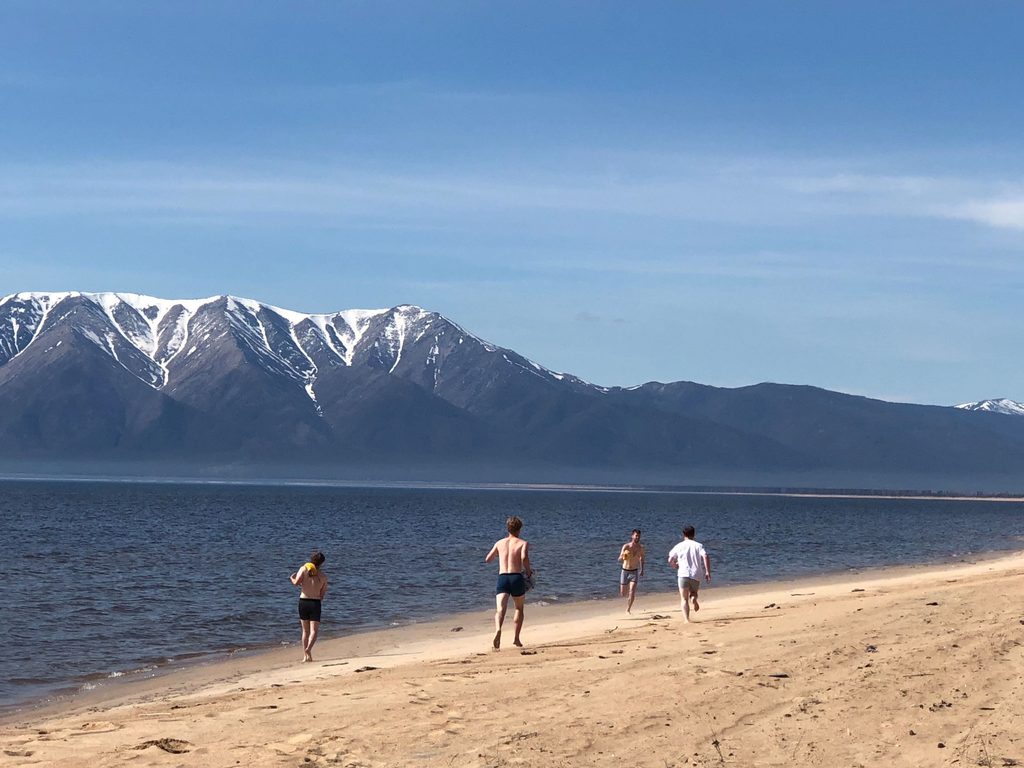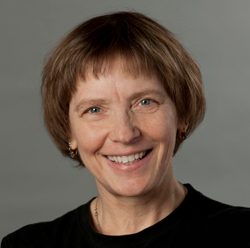Though its implications have been debated for centuries, Russia’s geographic span of the Eurasian continent has contributed to the formation of a rich blend of cultural influences unique in the modern world. Visitors to “Russia” who speak “Russian” quickly discover that both terms share plural meanings: from Lipetsk to Ulan-Ude, from Petrozavodsk to Krasnodar, people(s) of different heritages who call themselves Russian both share a common sense of national identity and take pride in regional and ethnic difference within the nation.
On the Global Russia program, students devote half of their academic hours to language study: if they agree on nothing else, the citizens of the Russian Federation take pride in the language they have either inherited or acquired. And through their knowledge of Russian students on the program will enter conversations with people of enormously various backgrounds. At the same time, through readings, discussion, and travel, students will explore the tensions that underlie cultural national unity, issues that are central to Russia’s participation in global culture today and in the future.
“Moscow” evokes many images: of minarets and multifaceted onion domes, concentric circles of elaborate mansions, narrow lanes and wide avenues, theaters, museums, art galleries, parks, and in the world of fashion, a sense of style unmatched in high (or low) couture. As residents in the main building of Lomonosov Moscow State University and students in the Philological Faculty, students on the program will find themselves immersed in this world from day one.
On excursions, participants will pair with Russian students to explore corners of the city often unknown even to Muscovites. On field trips beyond the city—to the ancient cities of Vladimir, Suzdal, and Murom and, later, to St. Petersburg—students will explore firsthand the influences that contributed to Russia’s emergence as a world power. And, towards the program’s end, on our ten-day venture towards the backlands of Lake Baikal in Buryatia, students will use their Russian-language and cultural skills to investigate Russia’s Mongol heritage as well as its global future as embodied by Lake Baikal itself.
This program is for students with sophomore, junior, or senior status during the 2019–20 academic year. Students must have completed at least two terms of Russian (101–102) at Carleton, or the equivalent, by the end of winter term 2019.
18 Credits
All courses apply toward Carleton’s major and minor in Russian. The applicability of credit may differ for individual students, depending on level and categories within the major and minor to be fulfilled. You are advised to consult the department with questions. All students will register for 9 credits of language courses, which meet for approximately nine periods per week and are taught by members of Foreign Language staff of the Philological Faculty of Lomonosov Moscow State University. Students at all levels of Russian experience will also register for a spring break reading course prior to the seminar, as well as “Russia’s Hallowed Places.”
RUSS 290: Reading for Russia (3 credits)
Over spring break, students will read works related to the seminar courses of study and excursions. Discussion and an examination on the reading will occur in the beginning of spring term.
Instructor: Professor Nemec Ignashev
RUSS 226: Russia’s Hallowed Places (6 credits)
This course explores localities in Russia that have acquired the significance of hallowed or sacred places, the reasons underlying their designation, and the diversity of belief systems they embody. Localities considered include places in and around Moscow (some holy, others cursed), the routes of literary heroes (and their creators) in St. Petersburg, sites of legendary historical significance in Central Russia, and the “sacred sea” of Siberia, Lake Baikal, and its Buryat-Mongol shamanist-Buddhist environs. Course materials: readings, films, excursions, lectures, and travel. Student learning is assessed through occasional quizzes, weekly discussions, and integrative blog writing assignments.
Instructor: Professor Nemec Ignashev
Students choose one of the following blocks:
ADVANCED LANGUAGE BLOCK
- RUSS 307: Advanced Grammar, 4 credits
- RUSS 308: Advanced Phonetics and Intonation, 2 credits
- RUSS 309: Advanced Practicum, 3 credits
These three courses combine advanced work in Russian grammar, language practice (speaking and writing), and phonetics. Students who register at this level will have completed at least 6 credits beyond Russian 205 and/or 206 and may already have studied in Russia.
– OR –
INTERMEDIATE LANGUAGE BLOCK
- RUSS 207: Intermediate Grammar, 4 credits
- RUSS 208: Intermediate Phonetics, 2 credits
- RUSS 209: Intermediate Conversation, 3 credits
These courses are for students at the intermediate level who have completed Russian 205 and/or 206. Focus at this level will be on vocabulary enrichment, grammar, and phonetics. Conversational Russian in class will be supplemented with regular meetings with Russian student language teaching apprentices.
– OR –
BEGINNING LANGUAGE BLOCK
- RUSS 107: Beginning Grammar, 4 credits
- RUSS 108: Beginning Phonetics, 2 credits
- RUSS 109: Beginning Conversation, 3 credits
These courses are for students who have just recently begun their study of the Russian language, having completed or tested beyond elementary Russian 102. At this level, students work on a combination of grammar, conversation practice, reading, and phonetics.
Language of Instruction
Russian and English
Diane Nemec Ignashev, Class of 1941 Professor of Russian and the Liberal Arts
Diane Nemec Ignashev teaches Russian language, as well as Russian culture and theories of culture, and her current research focuses on Russian film, Gulag fiction, and the life and work of poet Marina Tsvetaeva. She has lived and worked in Russia for many years, holds a joint position in the Department of Discourse and Communication Studies at Moscow University, and the 2016 Moscow program is her twentieth academic tour to Russia since 1988.
Students will reside in university dorms.
In addition to intensive, multi-level language study at the Philological Faculty of Lomonosov Moscow State University, students will enjoy urban field study in and around Moscow. There will also be trips to St. Petersburg and the Lake Baikal region — including the Republic of Buryatia on the border with Mongolia.
In addition to information contained in the guide books required for this program, we recommend you consider the information available in the links below:
Program dates roughly correspond to the Carleton academic term. Specific dates will be communicated to program participants.
All Carleton-sponsored 10-week off-campus study programs charge the Carleton comprehensive fee, which includes instruction, room and board, group excursions, public transportation, medical and evacuation insurance, travel assistance, and most cultural events.
Students are responsible for books and supplies, passports and visas (when required), transportation to and from the program sites, and personal expenses and travel during the seminar. Students will receive a program-specific Additional Cost Estimate at the time of acceptance.
Student financial aid is applicable as on campus. See the Off-Campus Studies website for further information on billing, financial aid, and scholarships.

